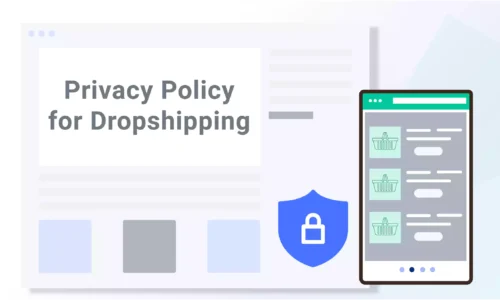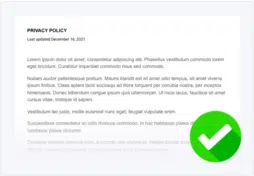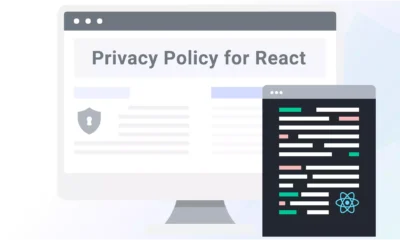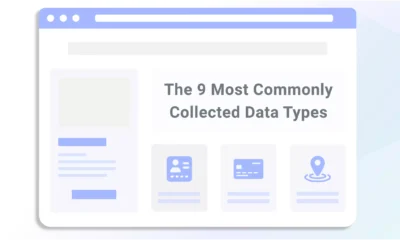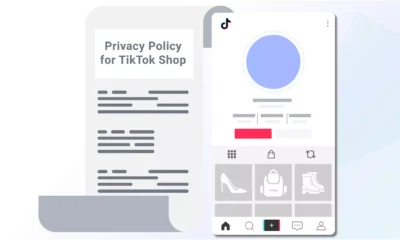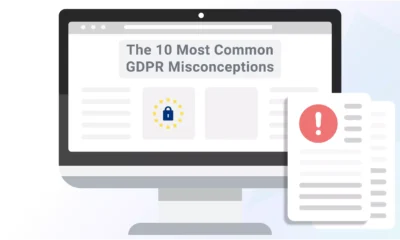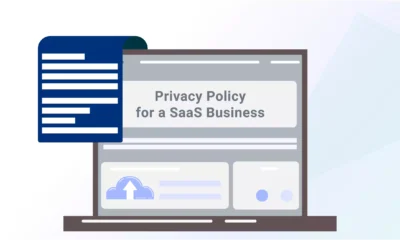If you have a dropshipping store, you need a robust dropshipping privacy policy to meet the requirements of applicable data processing laws.
A well-written privacy policy for your dropshipping store will also inform customers about their rights and help you gain credibility.
Below, I explain how to make a privacy policy for dropshipping websites, what goes into one, where to place it, and the various privacy laws that affect dropshipping.
- How to Create a Dropshipping Privacy Policy
- Does Your Dropshipping Business Need a Privacy Policy?
- Which Privacy Laws Affect Dropshipping?
- What To Include in Your Dropshipping Privacy Policy
- Tips for Making a Good Dropshipping Privacy Policy
- Where To Put Your Dropshipping Privacy Policy
- What Is Dropshipping?
- Summary
How to Create a Dropshipping Privacy Policy
To make a privacy policy for a dropshipping website and business, you can use a managed solution, a template, or write it yourself.
Managed Solution
A managed solution, like Termly’s Privacy Policy Generator, is the simplest way to make a privacy policy for a dropshipping website.
All you have to do is answer questions about your business and how you process consumers’ data. It then uses your answers to produce a finished policy.
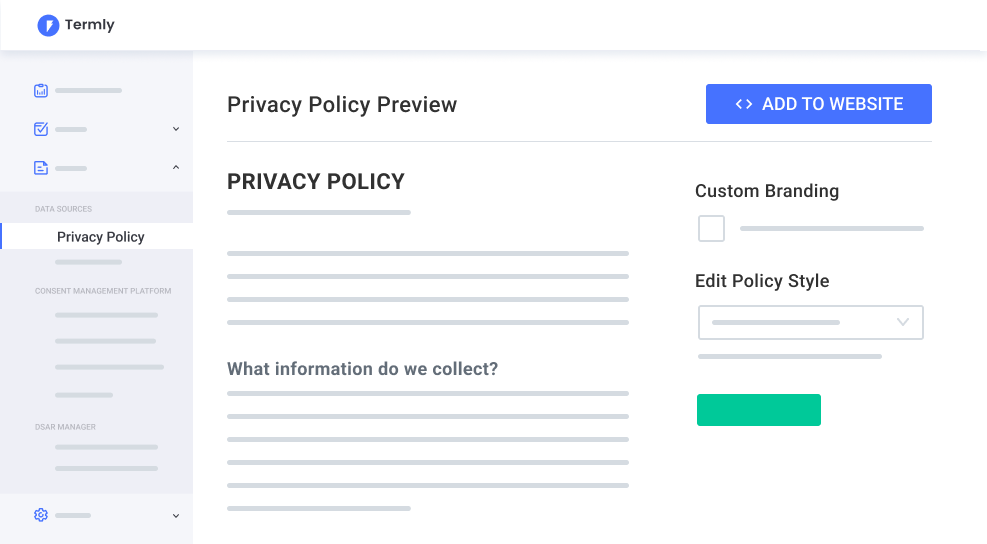
Not only are our solutions made by privacy experts, but at Termly, we’re committed to protecting the privacy of our users — talk about solutions you can trust.
Template
You can use a privacy policy template to help make one of these essential policies for your dropshipping business.
A template saves time because you don’t have to write as much from scratch, common language is already included, and it’s properly formatted based on common clauses.
You’re free to change as little or as much as required, depending on the needs of your business.
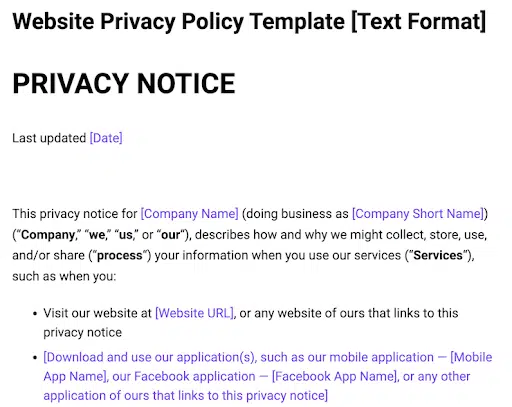
Do-It-Yourself
If you want complete control over the creation process, you can write your own privacy policy.
However, this method takes more time than templates or managed solutions and should only be considered if you know what you’re doing.
You must have extensive knowledge about the laws that apply to you to ensure your privacy policy is comprehensive and compliant, or else you risk getting fined.
A growing number of businesses are turning to B2B ecommerce development teams to ensure their website infrastructure and data practices meet regulatory standards from day one.
Does Your Dropshipping Business Need a Privacy Policy?
Your dropshipping business needs a privacy policy if you collect personal information and fall under any data privacy laws.
Whenever someone buys a product from your shop, they give you personal information that identifies them.
To protect their identity, privacy laws worldwide outline requirements, which include posting an easily accessible dropshipping privacy policy on your site.
However, having a privacy policy also helps build trust with your consumers because you’re being honest and transparent about what data you collect from them and why.
Which Privacy Laws Affect Dropshipping?
Many privacy laws around the world affect dropshipping, including the following:
- General Data Protection Regulation (GDPR)
- California Consumer Privacy Act (CCPA)
- California Online Privacy Protection Act (CalOPPA)
- Stop Hacks and Improve Electronic Data Security Act (SHIELD)
- Personal Information Protection and Electronic Documents Act (PIPEDA)
- China’s Personal Information Protection Law (PIPL)
Some Asian countries, such as Singapore, South Korea, and Malaysia, also have personal data protection acts (PDPAs) that require companies to have privacy policies.
What To Include in Your Dropshipping Privacy Policy
Your dropshipping website’s privacy policy should include the following clauses.
Personal Data Collected
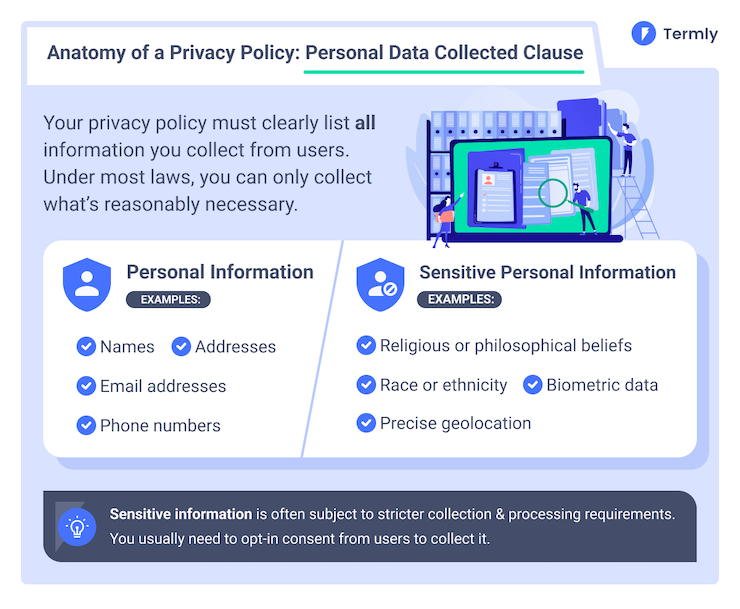
Your privacy policy should include a clause where you list all personal data you collect.
For example, if your dropshipping store collects email addresses, names, credit card numbers, and mobile phone numbers every time someone makes a purchase, you must tell customers that you do so.
Why You Collect Personal Data
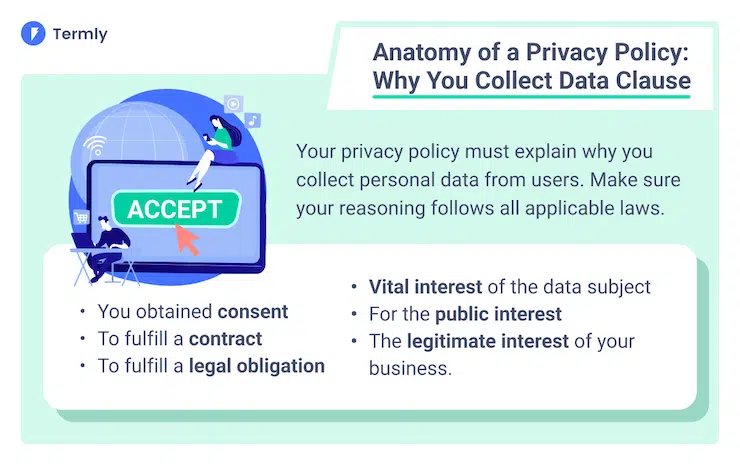
You must explain your reason for collecting personal data — under the GDPR, this is called your legal basis.
Make sure your reason for processing data is legally sound and meets any privacy laws that apply to your dropshipping business.
How You Collect Personal Data
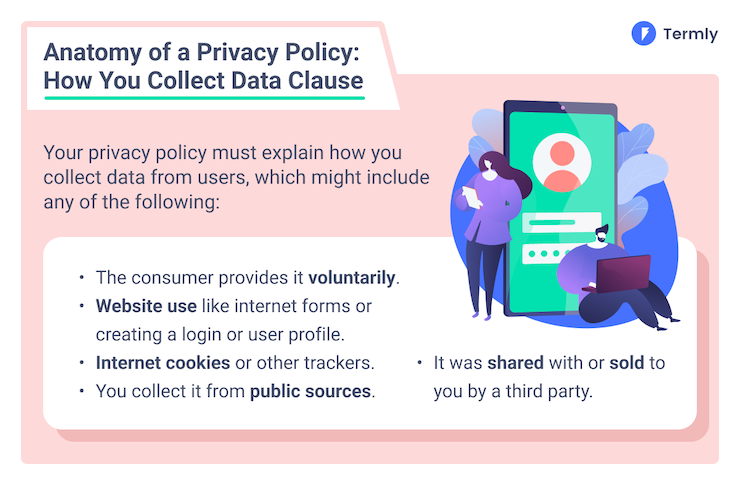
Some privacy laws require you to explain how and when you collect personal data.
For example, if you gather data whenever users subscribe to your newsletter and submit forms, you need to mention that.
If you have many ways of collecting data, particularly complex methods of gathering and processing data, you may need to disclose how and when you acquire this information.
Consumer Privacy Rights
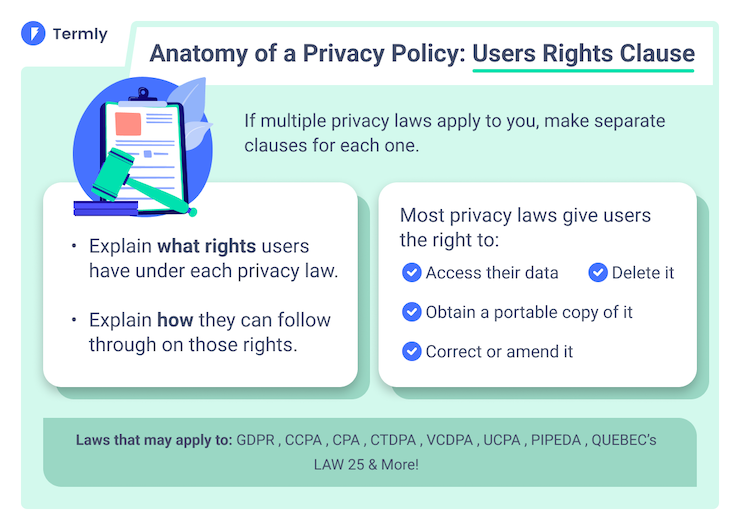
You must list out the rights that customers have over their personal data in your privacy policy.
The specific rights depend on what laws apply, but most consumers have the right to request to access, correct, and delete their data.
You’re also required to explain how your users can follow through on these rights.
If You Share Data With Third Parties
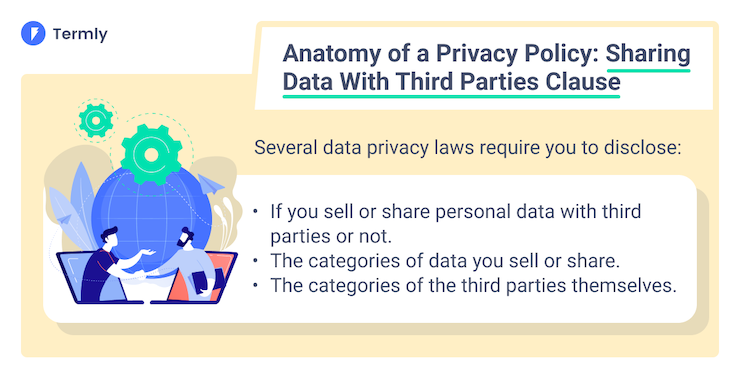
You must disclose if you share personal data with any third parties in your dropshipping site’s privacy policy.
For example, some companies may share customers’ personal data with their affiliated partners or with payment processing providers, like PayPal.
List out what information is sold or shared and under what circumstances, and be clear about the identities of the third parties with whom you share information.
Contact Information
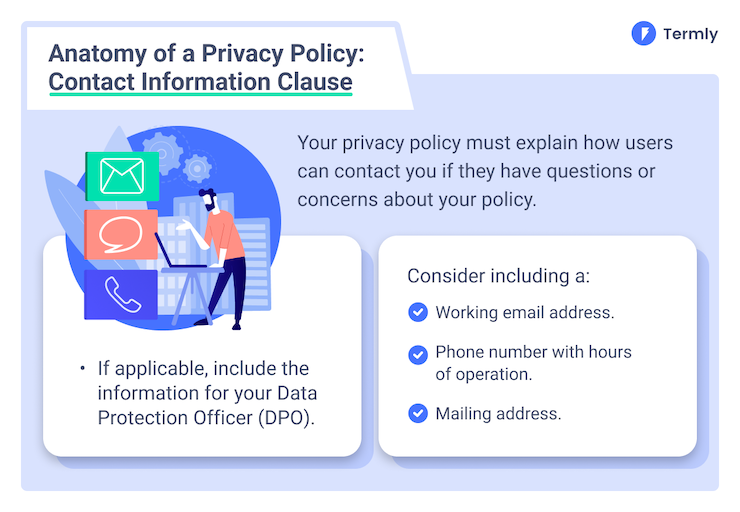
Include your company contact information in your dropshipping website’s privacy policy.
It can include an email, phone number, or even a mailing address.
It’s important to include these details so your users know how to reach you if they have questions or concerns.
Tips for Making a Good Dropshipping Privacy Policy
Making a good privacy policy from scratch for your dropshipping business can be challenging, so keep these tips in mind as you draft your own:
- Be clear and concise. Keep things simple and easy to understand. If you have a lot of information, consider using charts.
- Tailor it to your business. Never copy and paste from someone else; your policy should be specific to your dropshipping business.
- Update regularly. Ensure your privacy policy reflects your current privacy management practices.
- Follow all applicable laws. If you don’t, you could be fined for noncompliance.
Where To Put Your Dropshipping Privacy Policy
Once you’ve created your policy, you need to put it in a prominent area of your site or app. It must be easy to find so users can agree to its terms before sharing personal data with you.
Here are three places you should put your privacy policy on your dropshipping website:
- Website footer
- On payment screens
- On website forms and newsletter sign-ups
- In other relevant policies
- Wherever data collection occurs
What Is Dropshipping?
Dropshipping is an ecommerce business model where the seller pays a third party, such as a wholesaler or manufacturer, to deliver products directly to the customers.
Here’s how the dropshipping process works:
- Your customer places an order through your ecommerce store.
- Your store automatically sends the order to your dropshipping partner.
- Your dropshipping partner prepares your customer’s order.
- Your dropshipping partner ships the order directly to your customer.
Dropshipping is particularly popular in international commerce. For instance, a supplier in North America can pay wholesalers and manufacturers in East Asia to directly ship products to customers to cut costs, time, and money.
Traditionally, suppliers had to spend a lot of time and money choosing, purchasing, and shipping inventory. However, with the dropshipping model, you don’t have to buy anything unless the customer has already paid you.
This business model also has many other benefits, including:
- Accessibility: Anyone can start dropshipping as long as they have access to wholesalers and manufacturers willing to dropship.
- Easier to test business models: Dropshipping is less committed; you can speed through different ideas with limited downsides and learn what your audience wants and how to market in-demand products.
- Flexible location: You can run your dropshipping business from anywhere as long as you have an internet connection.
Summary
If you run a dropshipping business, you must create a clear and concise privacy policy as required by several different privacy laws.
Make sure that you’ve covered everything that needs to be covered in an easily digestible format, so your customers know how to exercise their rights.
Make it extra easy and use solutions like Termly’s Privacy Policy Generator to make a legally sound policy for your dropshipping site in minutes.

